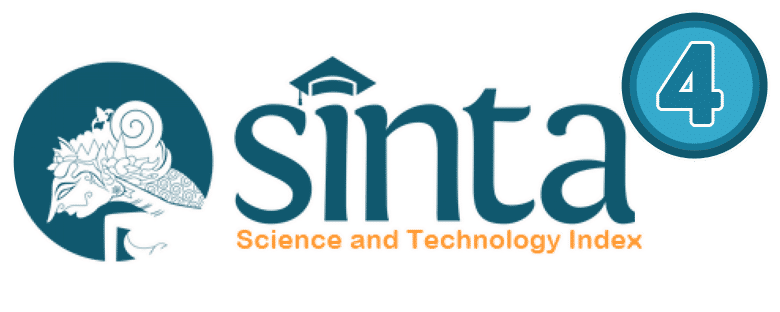The Relationship Between the Formation of Study Groups and Student Learning Independence
DOI:
https://doi.org/10.24114/icp.v4i1.58807Keywords:
Formation of Study Groups, Learning IndependenceAbstract
The purpose of this study was to determine the œRelationship Between The Formation Of Study Groups And Student Learning Independence. This research uses a quantitative approach with the correlation method. In this study, the sample was 70 students in class XI IPS SMA Negeri 8 Medan. The data collection technique used in this research was a questionnaire using a Likert scale. The validity of the instrument is obtained using the product moment correlation formula, while the reliability of the instrument is obtained using the Cronbach's Alpha formula. Data were analyzed using Product Moment Correlation Statistics to test the hypotheses in the research with the help of SPSS 29 for Windows. The analysis results show r = 0.541 and Rsquare = 0.321 and a significant value of 0.001 (p<0.05). Based on the results of this research, the research hypothesis "there is a relationship between the formation of learning groups and learning independence" is put forward. Considering that this relationship is positive at .541, it can be stated that the formation of study groups is related to student learning independence in class XI PS SMA Negeri 8 Medan.References
Ambiyar, A., Aziz, I., & Delyana, H. (2020). Hubungan kemandirian belajar siswa terhadap kemampuan pemecahan masalah matematis siswa. Jurnal Cendekia: Jurnal Pendidikan Matematika, 4(2), 1171-1183.
Arfiah, S. (2017). Penerapan metode kerja kelompok untuk meningkatkan hasil belajar IPA siswa kelas V C SD Negeri 004 Tembilahan kecamatan Tembilahan. Jurnal Pendidikan Guru Sekolah Dasar, 6, 267-275.
Arsyad, Azhar. 2011. Media Pembelajaran. Jakarta: Rajawali Pers.
Darmadi, H. (2017). Pengembangan model dan metode pembelajaran dalam dinamika belajar siswa. Yogyakarta: Deepublish.
Isjoni. 2009. œPembelajaran Kooperatif Meningkatkan Kecerdasan Komunikasi antar Peserta Didik. Yogyakarta: Pustaka Pelajar.
Hadi, Sigit Nur, dan Noor, Aisyah Juliani. 2013. Keefektifan Kelompok Belajar Siswa Berdasarkan Sosiometri dalam Menyelesaikan Soal Cerita Matematika di SMP. Jurnal Pendidikan Matematika, 1(1
Hayati, Indri Nur. 2009. œImplementasi Pembelajaran Dengan Pendekatan Reciprocal Teaching Sebagai Upaya Meningkatkan Kemandirian Belajar Matematika Dan Hasil Belajar Matematika Untuk Pokok Bahasan Kesebangunan Pada Siswa Kelas IX-I SMP N 1 Pacitan. Skripsi. Yogyakarta: UNY. (TidakDipublikasikan).
Hasanah, Z. (2021). Model pembelajaran kooperatif dalam menumbuhkan keaktifan belajar siswa . Jurnal Studi Kemahasiswaan, 1, 1-13.
Hidayati, K., & Listyani, E. (2010). Improving Instruments of Students Self-Regulated Learning. Jurnal Penelitian dan Evaluasi Pendidikan, 4(1), 85-99.
Mudjiman, Haris. (2011). Belajar Mandiri. Surakarta: UNS PRESS.
Muhibbin Syah.2010.Psikologi Pendidikan dengan pendekatan baru.Bandung:PT Remaja Rosdakarya.
Mustafida, F. (2020). Pendidikan Islam multikultural (konsep dan implementasi proses pembelajaran pendidikan agama Islam berbasis nilai-nilai multikultural). Depok: Rajawali Pers.
Noor Syam, Muhammad. 1999. Pengantar Filsafat Pendidikan. Malang: FIP IKIP Malang.
Nurhayati, Eti. (2011). Psikologi Pendidikan Inovatif. Yogyakarta : Pustaka Pelajar.
Purba, Edward & Yusnadi. (2015). Filsafat Pendidikan. Medan: UNIMED Press
Ningsih, R., & Nurrahmah, A. (2016). Pengaruh kemandirian belajar dan perhatian orang tua terhadap prestasi belajar matematika. Formatif: Jurnal Ilmiah Pendidikan MIPA, 6(1).
Sugiyono. 2005. Memahami Penelitian Kualitatif. Bandung: CV. Alfabeta.
Sugiyono. (2013). Metode Penelitian Kuantitatif, Kualitatif dan R&D. Bandung: Alfabeta.CV.
Sugiyono. (2018). Metode Penelitian Kuantitatif. Bandung: Alfabeta.
Sukiman. 2019. Model Pembentukan Kelompok Bervariasi Untuk membangkitkan motivasi Belajar Siswa. Jurnal Kependidikan, Pembelajaran dan Pengembangan, 1(1)
Downloads
Published
How to Cite
Issue
Section
License
Copyright (c) 2024 Alvina Zahra

This work is licensed under a Creative Commons Attribution-ShareAlike 4.0 International License.
Authors who publish with this journal agree to the following terms:
- Authors retain copyright and grant the journal right of first publication with the work simultaneously licensed under a Creative Commons Attribution License that allows others to share the work with an acknowledgement of the work's authorship and initial publication in this journal.
- Authors are able to enter into separate, additional contractual arrangements for the non-exclusive distribution of the journal's published version of the work (e.g., post it to an institutional repository or publish it in a book), with an acknowledgement of its initial publication in this journal.
- Authors are permitted and encouraged to post their work online (e.g., in institutional repositories or on their website) prior to and during the submission process, as it can lead to productive exchanges, as well as earlier and greater citation of published work.







